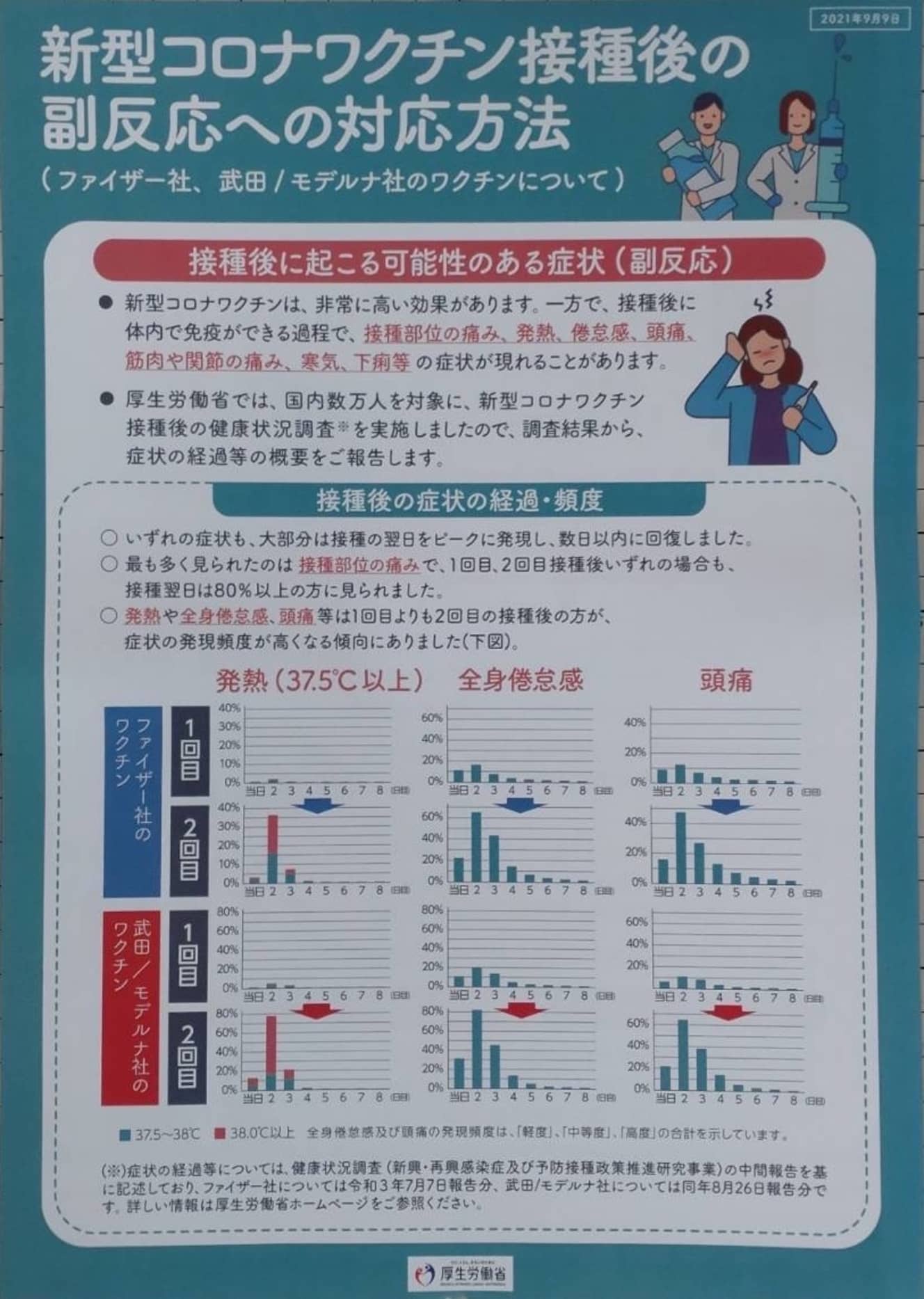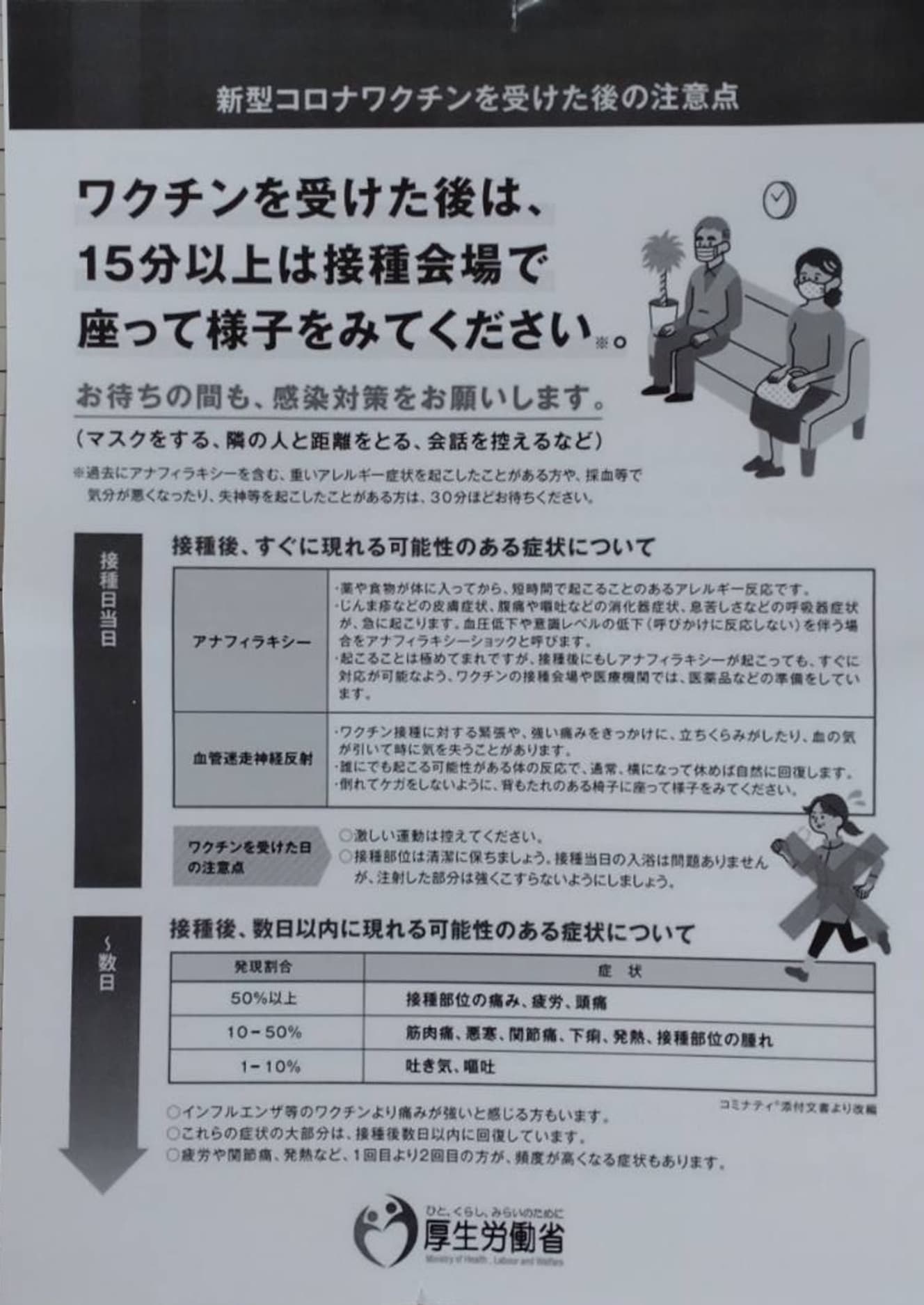Reporter Rush to Hospital Suffering Adverse Reaction After 3rd Dose Vaccine! Doctor’s Said be Prepared on “Alternate Inoculation”.
Tick, tick, tick, …….
As I was finally falling asleep at dawn, I was awakened by a strange sound. What was that noise? As I moved my head in a daze, I immediately recognized the source of the sound. My teeth were shaking up and down with chills, and I was making noises without pause.
It was in the morning of February 8 that this reporter, who was in his 40s, had his third vaccination after being urged by his wife, “Let’s get a quick shot of the Omicron strain because it’s going around. On the morning of February 8, I went to a nearby ward center designated by Bunkyo Ward, Tokyo, where I live.
Incidentally, the reporter is usually quite healthy and has no underlying medical conditions. He drinks alcohol every day, but does not smoke. The vaccine to be given this time is made by Moderna. The last two vaccines were made by Pfizer, so this is what we call “alternate vaccination. Before the vaccination, the doctor told me something scary in a separate booth separated by a curtain.
He said, “If this is your third alternate vaccination with Moderna, you should be prepared for some adverse reactions. About half of the people who get the third dose of the alternate vaccination by Moderna have symptoms such as fever of 38 degrees Celsius or higher or chills.
The Ministry of Health, Labor and Welfare handed me a document from ……, which said that even the second dose of the Moderna vaccine caused general malaise in 80% of people and headaches in 60% of people. Bewildered.
My body temperature surpassed 38 degrees Celsius in no time!

The vaccination itself was over in a minute or two. After getting the vaccine shot, I rested in the hall for 15 minutes to deal with anaphylaxis (allergic reaction) and other issues. In the afternoon, I worked remotely, and was relieved that the day was going to be uneventful.
Hmm? Something’s not right. It was after dinner, a little after 9pm, that I felt that way. I felt an unpleasant dullness, just like before I caught a cold. I checked my body temperature, and it was 36.8 degrees Celsius, which for a reporter whose normal temperature is in the 35 degree range, is not a number that I would consider “okay.
Why don’t you go to bed before it becomes a big deal?
My wife urged me to get into the futon. The rest of the night went by in a flash. My body temperature rose rapidly and exceeded 38 degrees Celsius. I had a severe headache, chills, and fatigue, and I couldn’t stop shaking. I was sweating profusely, and within two hours, my underwear and pajamas were soaked. I was forced to change my clothes four times in one night.
Are you okay?”
I could only shake my head in response to my wife’s worried question. I put a double layer of bedding over my head, but the cold kept me awake, so I crawled to the bathroom at dawn. I crawled to the bathroom at dawn, and my body temperature had risen to 38.8 degrees Celsius.
After the second vaccination, I had an adverse reaction, but the fever subsided within a few hours. I was really disappointed this time. By the way, my wife, who also got the third dose by alternate vaccination, was fine. It was kind of frustrating.

It turns out that adverse reactions vary greatly from person to person, but no one wants to be tormented by high fever and chills. Prime Minister Fumio Kishida recommends the vaccine, but it is no wonder that the third dose vaccination rate is only about 11% (as of February 16, according to the Prime Minister’s Office website).
Even so, you should get the third dose,” says Professor Hiroyuki Moriuchi of Nagasaki University School of Medicine, who specializes in infectious diseases.
It’s true that there are cases where adverse reactions occur. However, the benefits of the third vaccination are far greater than the possible risks. Especially for the elderly and people with diseases, the benefits are tremendous.
Even after the second inoculation, the neutralizing antibodies will decrease over time. One theory says that the effective period of antibodies after vaccination is 8 months, but I believe it is about 3 months. The prevention rate of new coronas is less than 20% if nothing is done. However, if you take the third dose, you can prevent the onset of the disease by 60-70% with Pfizer’s product and 80% with Moderna’s product. The probability of avoiding serious illness is probably more than 90% for both companies.
Young people in their teens and twenties who do not want to have adverse reactions may not need to take the third vaccine. The risk of serious illness is low. However, this is not the case for the elderly or people with diseases that are at high risk of serious illness. They should be vaccinated right away.
It is true that adverse reactions are painful. But the benefits are much greater. From the third day after the vaccination, the reporter felt fine, as if the adverse reaction had been a lie. Her antibodies must have increased dramatically after the second vaccination. Having overcome the hardships for a while, I was sure that I felt more relaxed.

